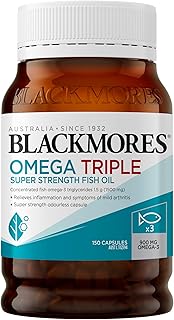Ageing is a natural process that has intrigued humanity for centuries. While the fountain of youth remains elusive, scientists are exploring ways to slow down this inevitable progression. Researchers have identified strategies like calorie restriction and the consumption of vitamin D and omega-3 fatty acids that show promise in retarding ageing. The effectiveness of these methods has been demonstrated in animal studies, prompting further investigation into their impact on human ageing.
Heike Bischoff-Ferrari, a Professor of Geriatrics and Geriatric Medicine at the University of Zurich, collaborated with a team from Cambridge University to delve into the effects of vitamin D, omega-3, and exercise on human ageing. Their study involved 777 individuals over 70 years old, evaluating the impact of these interventions on biological ageing using epigenetic clocks. These clocks measure DNA methylation modifications, providing insights into the variance between biological and chronological age.
During the three-year study, participants were assigned different combinations of treatments, including vitamin D supplementation, omega-3 intake, and strength training. The results revealed that omega-3 fatty acids could potentially slow biological ageing by several months, irrespective of gender, age, or body mass index. Additionally, the combination of omega-3, vitamin D, and exercise exhibited even more significant effects on one of the epigenetic clocks, hinting at a synergistic anti-ageing impact.
However, the researchers acknowledged certain limitations in their study, such as the lack of a universally accepted standard for measuring biological age and the homogeneity of the participant pool, consisting solely of Swiss individuals. To address these constraints, future studies aim to include participants from various countries to capture a broader spectrum of genetic and lifestyle influences on ageing.
Omega-3 fatty acids are essential nutrients that must be obtained through diet, with sources like chia seeds, flaxseeds, seaweed, and oily fish such as salmon, mackerel, and sardines. The availability of these dietary fats underscores the importance of a balanced diet rich in essential nutrients for overall health and potential anti-ageing benefits.
As researchers continue to unravel the complexities of ageing, these findings offer a glimpse into potential strategies to mitigate its effects. While further research is warranted to validate these preliminary results and address study limitations, the pursuit of interventions that promote healthy ageing remains a focal point in scientific exploration.
It is essential to note that the information presented in this article is for informational purposes only and does not constitute medical advice. Individuals are advised to consult healthcare professionals before implementing any changes to their health regimen, including diet, exercise, or medication.
📰 Related Articles
- Ultrasound Techniques Show Promise in Predicting Helicobacter Pylori Infection
- HIV Drugs Show Promise in Lowering Alzheimer’s Disease Risk
- Chia Seeds Show Promise in Reducing Inflammation: Study Analysis
- Young Models Shine in Paris Fashion Show Extravaganza
- Yahoo News Submission Process: Amplifying Reach and Engagement






